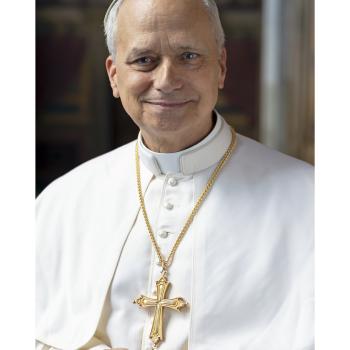God opens our ears before he opens our mouths. The order of these actions is significant. If we do not listen first, we will not speak wisely. We notice this in the natural world when we find somebody who has difficulty hearing–his or her speech is also usually affected.
Jesus opened the ears and mouth of this man who was deaf with a speech impediment (cf. Mk. 7:31-37). We re-live this Gospel scene at baptisms. It is an optional rite in child baptisms, but one I find deeply meaningful. As one of the complementary rites in baptism, we make the sign of the cross over the ears and mouth of the small child. I find that often the child is wriggling around at this stage, which makes it a bit challenging, yet also a tender moment.
In his recent apostolic journey to Indonesia, Pope Francis reflected about listening.
Everything comes from listening, from opening ourselves to him, welcoming the precious gift of his friendship. Then it is important to live the word we have received, so as not to listen in vain and deceive ourselves (cf. Jas 1:22). Indeed, those who risk listening only with their ears do not allow the seed of the word to descend into their hearts and thus change their way of thinking, feeling and acting, and this is not good. The word given, and received through listening, wishes to become life in us, transform us and become incarnate in our lives (Pope Francis, 5 September 2024).

Do We Really Have To Learn To Listen?
We need to learn to listen.
While listening is a skill universally lauded, it’s rarely, if ever, explicitly taught as such, outside of training for therapists. A 2015 study showed that while 78% of accredited undergraduate business schools list “presenting” as a learning goal, only 11% identified “listening” (Robin Abrahams and Boris Groysberg, “How To Become A Better Listener”).
Active listening has three elements: cognitive, emotional, and behavioral. It takes intelligence to pay attention to what someone is saying, comprehend it, and then integrate it into our own worldview. It can be challenging to remain calm and compassionate during a conversation as we manage our own emotions. Behaviorally, we also must make sure we convey interest and comprehension both verbally and nonverbally.
Speaking Rather Than Listening
Too often in a conversation, we can become too focused on what we are saying. We put the focus on ourselves and obsess over “scoring points” rather than earnestly communicating. Often, this masks an attitude of pride. We think that we are the smartest person in the room and we want to bedazzle others with our knowledge and brilliance.
The Jesus Way
Jesus took an entirely different approach. He wanted to listen to the people who came up to him. So much of his preaching was based on what he heard and saw in the people around him. In the case of today’s Gospel, we see how he focuses his attention on the suffering of the man in front of him. Only tangentially does he give any lesson.
Jesus was powerful and he was able to work a miracle for this man. In doing so, he reveals something in this passage about the nature of the sacraments: they unite the material and the spiritual world. Jesus is God, completely in tune with the will of his heavenly Father. Despite being God, he chooses to use material means. He touches the man with his hands, and even puts spit on the man’s tongue. There is an eminently physical aspect of the whole event.
The purpose of the sacraments is to sanctify men, to build up the Body of Christ and, finally, to give worship to God. Because they are signs they also instruct. They not only presuppose faith, but by words and objects they also nourish, strengthen, and express it. That is why they are called ‘sacraments of faith.’ (Catechism of the Catholic Church, 1123).
Closeness of the Sacraments
We should not think of the sacraments as something far removed from us and theoretical, belonging to some ambiguous zone of the Church. Rather, the sacraments are something real which connect us to the heavenly reality. This is part of what I was able to experience at the National Eucharistic Congress. The sacrament of confession was celebrated thousands of times over and we were all living out the joy and reality of our baptism. Sixty thousand pilgrims came together from across the United States, centered on the mystery of the Sacrament of the Eucharist. All the truths of the faith are connected. In theology, this is known as the analogia fidei, the “analogy of faith.”
Each one of us is called to experience Christ as this deaf and mute man from the Gospel did. For some of us, we will feel it at our small groups. Some may experience it while praying the rosary. We can all experience Christ through the sacraments. Baptism is the door to the other sacraments. If we truly want to love our Lord, we will do our best to live the sacraments well and invite others to the fullness of the faith in the Catholic Church. So many people like to say things about the Church and about the world in which we live, but we would all do well to heed today’s Gospel and listen before we speak. Then, we will be able to proclaim more courageously the message entrusted to us by the Lord, in the hope that all men and women may come to salvation.
Subscribe to the newsletter to never miss an article.













